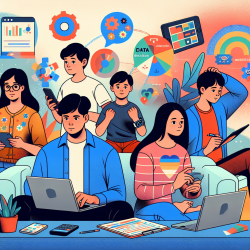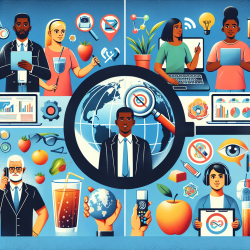The global landscape of employment for people with disabilities is fraught with challenges and disparities. According to the World Bank, over a billion people live with some form of disability, facing significant barriers in accessing jobs, education, and healthcare. The research article "Smart Nations for All, Disability and Jobs: A Global Perspective" introduces a comprehensive framework—the Quadruple-Sextuple Helix—to address these issues effectively.
Understanding the Quadruple-Sextuple Helix Framework
This innovative framework builds upon previous models like the Triple Helix and expands them by adding critical dimensions that address the nexus between disability and employment. The Quadruple Helix includes four main institutional players: government, academia, private sector, and NGOs. These entities form the backbone of a nation's disability empowerment ecosystem.
The Sextuple Helix further enhances this model by introducing six key factors: ICT infrastructure, inclusive social and economic environments, job creation opportunities, equitable educational systems, accessible infrastructure, and comprehensive healthcare. Together, these elements create a dynamic ecosystem conducive to increasing employment opportunities for people with disabilities.
Implementing the Framework: A Pathway for Practitioners
- Government Initiatives: Encourage policies that promote inclusivity and accessibility in the workforce. Public-Private Partnerships can be instrumental in creating incentives for companies to hire more individuals with disabilities.
- Academic Contributions: Develop educational programs that focus on disability studies to prepare future leaders in creating inclusive environments. Research initiatives should aim at understanding and solving barriers faced by people with disabilities.
- Private Sector Engagement: Companies should actively seek to eliminate stereotypes and barriers within their hiring practices. Leading by example can set a precedent for other businesses to follow suit.
- NGO Involvement: Act as bridges between employers and potential employees by providing training and advocacy for disability rights in the workplace.
The Role of ICT and Infrastructure
A strong ICT infrastructure is crucial in bridging the digital divide that often exacerbates challenges faced by people with disabilities. Countries that have invested in ICT have shown better outcomes in terms of inclusivity and job creation. Similarly, accessible infrastructure plays a vital role in enabling mobility and independence for individuals with disabilities.
A Call to Action
The findings from "Smart Nations for All" underscore the importance of a holistic approach to fostering employment for people with disabilities. Practitioners are encouraged to delve deeper into this framework and consider how they can apply its principles within their own contexts. By doing so, they can contribute significantly to creating a more inclusive world where everyone has equal access to opportunities.
Smart Nations for All, Disability and Jobs: A Global Perspective










